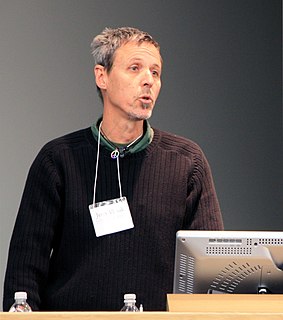A Quote by Ann Reinking
Related Quotes
The libertarian approach is a very symmetrical one: the non-aggression principle does not rule out force, but only the initiation of force. In other words, you are permitted to use force only in response to some else's use of force. If they do not use force you may not use force yourself. There is a symmetry here: force for force, but no force if no force was used.
There are two types of people in the world. People who like kids, and people who don't. People who complain about kids screaming on aeroplanes and in restaurants, and those people who love kids and enjoy their energy and enjoy hearing the noise they make and get off on their energy. I am one of those people who happens to love kids.
People will ask me, "How do you approach writing books for young readers differently than for adults?" My answer is always: I don't change anything about the story itself. I'm going to tell kids the way things really were. What I don't do - and this is the only thing I do differently in writing for kids - is that I don't revel in the gory details. I allow readers to fill in the details as necessary. But I don’t force kids to have to digest something they’re not mature enough or ready for yet. If they are, they can fill in the details even better than I could, just with their imaginations.
I think Dario Ringach is a poster boy for the concept that the use of force or the threat of force is an effective means to stop people who abuse animals," "No strictly peaceful movement has succeeded in liberation," "I think the animal rights movement has been restrained in its use of force, mostly because people in the struggle are often people of privilege who aren't willing to risk losing that privilege.




































